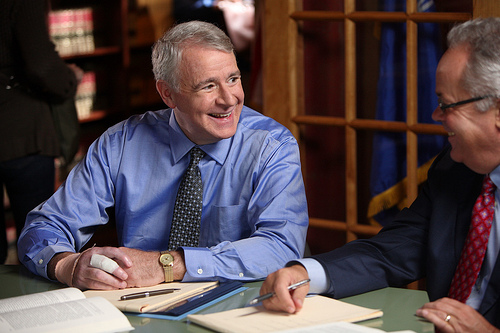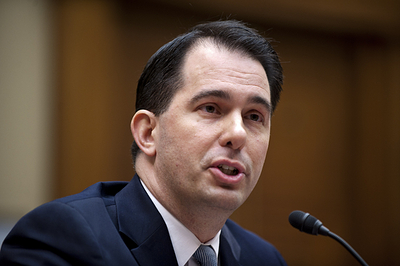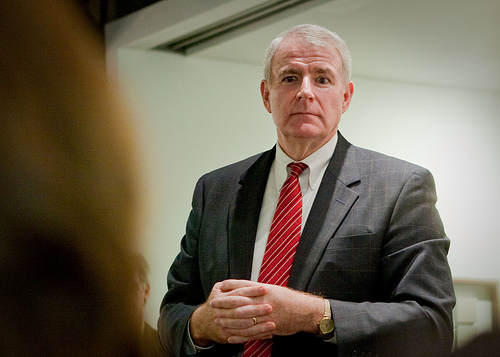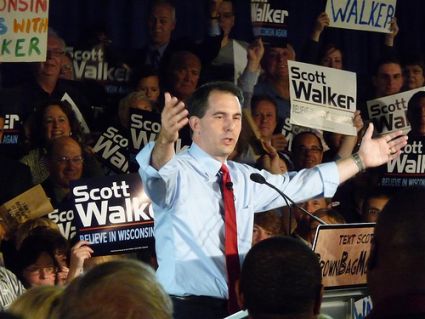
Milwaukee Mayor Tom Barrett.<a href="http://www.flickr.com/photos/tommbarrett/5507569165/sizes/m/in/photostream/">TomMBarrett</a>/Flickr
Milwaukee Mayor Tom Barrett, who lost to Scott Walker in Wisconsin’s 2010 gubernatorial race by 125,000 votes, wants another shot at governor.
On Friday afternoon, Barrett announced he would seek the Democratic nomination in Wisconsin’s recall race. Barrett faces former Dane County Executive Kathleen Falk, a union favorite; state Sen. Kathleen Vinehout; and Secretary of State Doug LaFollette. Barrett said in a statement that Gov. Walker has “divided our state like never before and presided over a Wisconsin economy that last year lost more jobs than any state in the country.”
He continued: “He ‘dropped the bomb,’ as he said, and ended 50 years of labor peace and worker protections—something he never said he’d do during the 2010 campaign. I know, because I was there. As governor, I will fight to restore collective bargaining rights, because it’s the right thing to do, and it’s necessary to heal Wisconsin.”
Recent polls show Barrett heading to victory in a hypothetical Democratic primary. A recent Marquette University Law School poll showed Barrett with 36 percent of support, Falk with 29 percent, Vinehout and LaFollette with 8 percent each. A late February survey by Public Policy Polling showed Barrett beating Falk 45 percent to 18 percent. (That was an improvement for Barrett: a January PPP survey put him ahead of Falk 46-27.) In that same February PPP survey, Barrett led Walker by three percentage points in a hypothetical general election, 49-46. A Marquette University Law School poll published last week showed Barrett trailing Walker 49-47.
Barrett’s entry sets up a bruising fight for the Democratic nomination in the Walker recall rumble. There is no love lost between Barrett and Wisconsin’s labor unions, a bastion of Democratic support, and in recent weeks, union officials have quietly sought to undermine Barrett’s standing in Wisconsin and work against a possible recall candidacy. In an interview with Mother Jones, Falk questioned the wisdom of a late entry by Barrett into the recall fray. She said she hoped Barrett would support her recall candidacy just as she supported his 2010 gubernatorial campaign. “I think it’s his turn to support me and I hope he does,” Falk said.
While Falk boasts of her many union endorsements, Barrett is a fixture in Milwaukee and Wisconsin politics, and already counts former Rep. Dave Obey (D-Wisc.) as a high-profile supporter in the race. Barrett’s candidacy will make it harder for Falk to win widespread support in Milwaukee, a Democratic hotbed, says Charles Franklin, a visiting political scientist at Marquette University. Yet Barrett, Franklin adds, bears the burden of having already lost a governor’s race to Walker in 2010. (Barrett also lost in the 2002 gubernatorial primary.)
In a statement, Falk responded to Barrett’s announcement by saying, “I welcome Tom to this important race.”
This story has been updated.
















